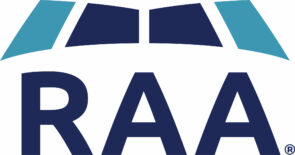
TALKING TO YOUR COLLEGE-AGED CHILDREN ABOUT FINANCIAL PLANNING
- Posted by Michael Kane, CFP®
- On May 16, 2017
- budget, children, credit, expenses
Saving money is an important part of preparing for the future. Teaching your children how to budget and save early on will not only help them ensure a solid future, it will also help them to achieve financial independence.
By the time your kids are old enough to go off to college, they are ready to begin taking steps to prepare for their own financial futures. Here are several topics you can discuss:
SAVING AS EARLY AS POSSIBLE
Tell your child that now is the time to begin saving. While in high school, children are often only focused on their immediate wants and not their long-term needs. This is fine during high school, but they will need to learn about taking care of their needs before their wants as they enter their adult life. Discuss with them how saving early will earn them more and help them avoid the stresses of unexpected life expenses. Talk to them about investing and the power of compounding interest. Let them know your own goals and fears when it comes to retirement and how getting a savings and investment plan early in life, leads to less fear and greater confidence in their own lives.
KNOWING THEIR MONTHLY EXPENSES
Talk to your child about what expenses they can expect to encounter in their daily life. While living with you, all of their needs have been met by you, but often times they don’t know how many bills they will be expected to pay. Discuss how much basic living expenses such as utilities, transportation, groceries, and rent will cost so they have a better understanding about how much they will need to earn per month when they are on their own.
BUDGETING THEIR MONEY
Sit down with your child and create a budget that includes all living expenses as well as entertainment, clothing, and any recurring medical expenses. Be as thorough as possible so they learn to record what they are spending to avoid running out of money before the end of the month. Make sure they understand the impact school loans (if they have any) will have on their budget when they reach graduation.
ESTABLISHING GOOD CREDIT
It’s important for your child to begin establishing credit as early as possible. Having good credit will make it easier for them to get car loans and mortgages. Teach them how to use credit responsibly, review what goes into a credit score and how important that score is to life in the future. Be sure to educate them about the dangers of too much debt and how much it will cost them if they don’t use their credit wisely.
JOINING THE WORKFORCE
Encourage your child to get a part-time job. Many colleges will offer part-time employment that works with their class schedule. Having a job will not only help them to begin saving money, but it will also help prepare them for their life after college.
STAYING ON TRACK TO GRADUATE
As fun as college may be for your child, it is important that they realize if they stay in school longer than necessary, they will be accruing more debt, which will make saving more difficult.
It’s important to remember that although your child is now an adult, they are still in need of your guidance. Helping them learn to save is a valuable lesson that will benefit them throughout the rest of their life.
For more information on ways you can help your children prepare for their financial future and how this fits into your plan, schedule a complimentary consultation with RAA.
Disclaimer: This blog is intended for informational purposes only and should not be construed as individual investment advice. Actual recommendations are provided by RAA following consultation and are custom-tailored to each investor’s unique needs and circumstances. The information contained herein is from sources believed to be accurate and reliable. However, RAA accepts no legal responsibility for any errors or omissions. Investments in stocks, bonds, and mutual funds may increase or decrease in value. Past performance is no guarantee of future results. Any of the charts and graphs included in this blog are not recommendations for the purchase and sale of any security.



0 Comments